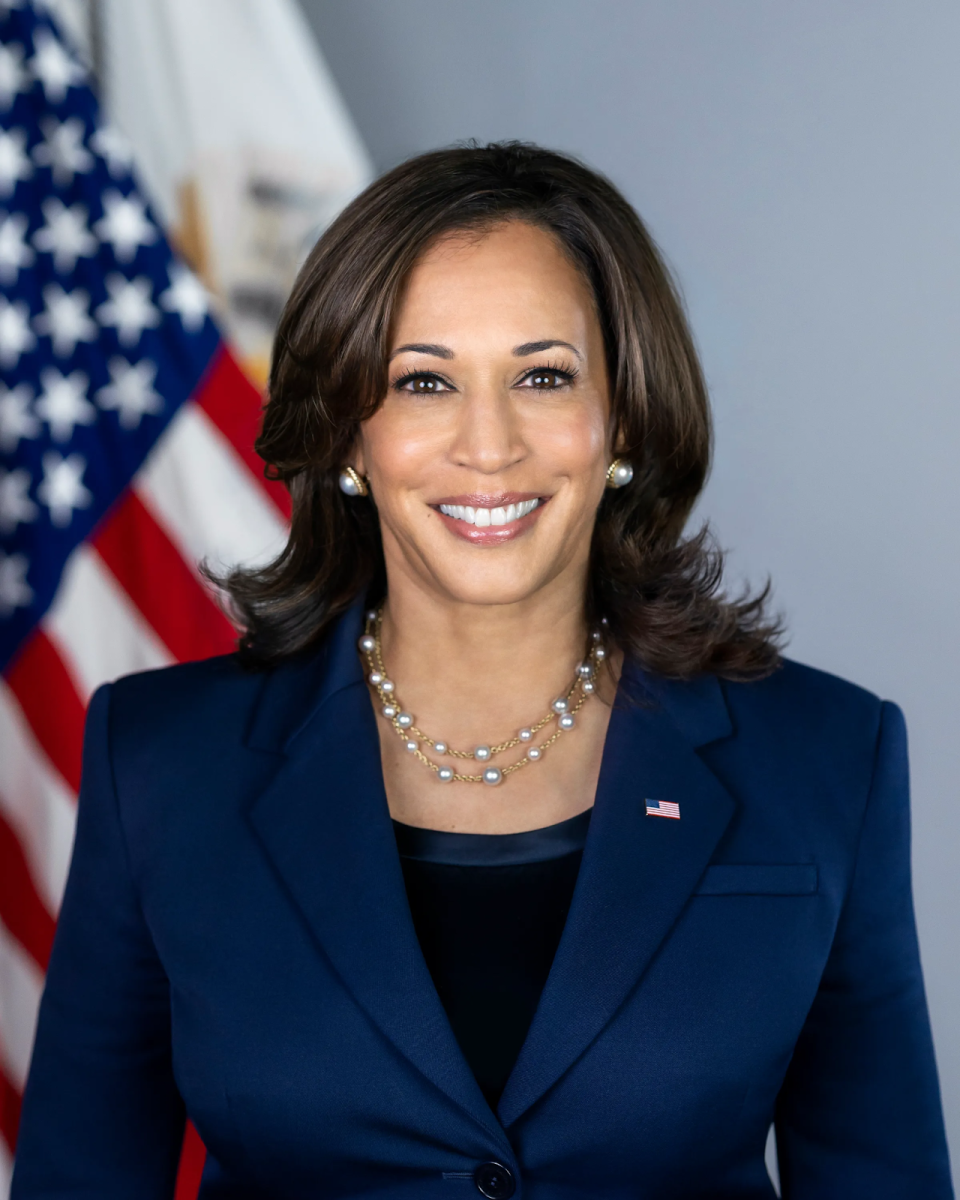The 2024 election was a devastating blow for those hoping for a turning point in American politics. For many, it felt like a replay of the 2016 General Election, but instead, it was current Vice President Kamala Harris facing formerly impeached President Donald Trump.
Voters once again chose a civilly-convicted sexual assaulter, racist, sexist, and less qualified male candidate over a woman senator, prosecutor, attorney general, and vice president.
Despite all the claims I’ve read about why Harris lost (her abortion stance, middle-class voters wanting cheaper groceries, her inability to critique Joe Biden’s presidency), her loss wasn’t because of rigged voting machines or shadowy election interference. Her loss was a culmination of American culture—a culture prejudiced against women and people of color.
Looking back, experts and voters will obviously be able to find areas that Harris could have improved in, but I don’t think her lack of talking about policy, or her policies themselves, was the make-or-break factor in this election.
The “Likability Trap” in Politics
The likability trap refers to the impossible standard that women in politics are expected to uphold: they must be competent, but not too assertive; ambitious, but not too aggressive; warm, but not overly emotional.
Male politicians aren’t judged by those measures. In fact, research has shown that, in general, men are more likely to receive a boost in their perceived status after conveying anger, whereas, for women, the situation is reversed; a woman who shows anger invariably is accorded lower status and viewed as less competent in their role. Voters who found Harris “too ambitious” or “too aggressive” were often the same people who praised Trump for his decisiveness and assertiveness.
So, women are already facing a losing battle. Hillary Clinton was caught in this trap in 2016. Critics constantly told her to smile more, to soften her tone, to be more relatable. She adjusted her campaign strategy accordingly and smiled more, but opponents and the media then claimed she smiled too much.
No matter how much Harris smiled, voters still found reasons to reject her, citing vague concerns about her untrustworthiness, and according to The Washington Post, “Her poor marks for trustworthiness have much to do with her long and sometimes messy public life, and very little to do with Republican opponent Donald Trump.”
If that were truly the case, how come Trump, who has an equally if not more messy public life, receives such little criticism in that regard?
Harris Did A Lot Right—And Still Lost
In this election cycle, Harris tried to avert the criticisms that Clinton received years prior, focusing much of her campaign on being likable and relatable.
She smiled more than Clinton. She engaged in casual conversations on the campaign trail, showing warmth and humor. She made a concerted effort to come across as relatable while still demonstrating her vast experience in public service without elevating herself from the average citizen.
Yet, despite her efforts, the result was the same: a loss that had little to do with her competence and policy and much more to do with her racial and gender identity (and maybe even the fact she had no biological children??).
According to the National Library of Medicine, women experts receive less recognition for additional expertise while facing harsher penalties for lack of experience compared to their male counterparts; no one cares that Trump is not qualified, and no one cares that Harris is.
Will Chamberlain, a conservative lawyer who worked on Ron DeSantis’s presidential campaign, posted on X, formerly Twitter, that Harris “shouldn’t be President” since she does not have biological children, stating that “becoming a step-parent to older teenagers doesn’t count.” Apparently, “The concerns of parents and families will always be abstract to her” because she doesn’t have “skin in the game, a stake in the future, and the lived experience of raising children.”
In this vein, men shouldn’t have opinions or an impact on policy regarding abortion since they don’t have any “skin in the game.”
The Media’s Role in Perpetuating Bias
The media played a significant role in reinforcing these gendered expectations. Coverage of Harris: instead of focusing on her policy proposals or extensive experience, headlines were dominated by discussions of her tone, facial expressions, and whether she was “relatable” enough.
Arkansas Republican Gov. Sarah Huckabee Sanders said that Harris “doesn’t have anything keeping her humble” because of her lack of biological-children, and J.D. Vance is well-criticized for his childless-cat-lady comments.
Studies have found that media coverage of women candidates is less frequent, and when it does happen, it is much more likely to include commentary on their appearance and demeanor compared to male candidates.
The same study found that when covering female political leaders, the media focused on their family and love life much more than policy, and when asked about policy, they are usually only prompted on “soft” issues, such as healthcare, education, and social welfare, while men are associated with “hard” topics such as the economy, national security, and defense.
This kind of coverage matters; it shapes public perception and influences how voters evaluate candidates. By focusing on superficial traits rather than qualifications, the media contributes to a biased narrative that ultimately harms women in politics.
Voters’ Reluctance to Embrace Women Leaders
It’s easy to blame Kamala Harris’s loss on voter biases, but it’s more complex. It’s about societal discomfort with the idea of women in power. While most Americans say they are comfortable with the idea of a woman president, most don’t believe that a woman can win in the current political climate, revealing a deep-seated reluctance to embrace women leaders in a political environment that claims sexism is dead.
This is why Harris’s loss feels rigged—not by voter fraud, but by an entrenched system of gender bias. Her defeat wasn’t about her policies, her experience, or her vision for the country. It was about the collective decision, conscious or not, to maintain the status quo rather than challenge it with a Black woman’s leadership.
So, What Needs to Change?
I don’t think it is a coincidence that Trump has run for three terms in a row, and the only time he lost, was to an old, white, moderately left man. Why do you think the DNC returned to that same exact archetype following Clinton’s 2016 loss? They learned that society was not ready for a woman, no matter her experience, to be president.
It’s time for a cultural reckoning, and it’s not a quick fix. Voters need to confront the biases that shape perceptions of women candidates and question why they judge women differently than men. Media organizations need to rethink how they cover women in politics, focusing more on their policies and achievements and less on their appearance, family, demeanor, and smile.
For minority candidates like Harris, the road ahead is undeniably difficult. But each campaign chips away at the barriers, making it a bit easier for the next person of color and the next woman to run. It’s a slow and painful process, but it’s one that we must continue if we want to see true gender and racial equality.
As sad as it is, at least we can say that this election is the closest we have ever gotten to a Black woman as president. And although the loss stings, American voters cannot afford to let the status quo win. The next time you hear someone tell a woman candidate to “smile more,” remember Harris. She did, and it still wasn’t enough—not because of her shortcomings, but because of ours.









Ryan • Nov 27, 2024 at 2:14 pm
You forgot to mention Kamala rose to the top by the same favors Monica Lewinsky was giving Clinton…. Is that a quality of an effective leader?
Is that what you want to tell people that is how you get to the top…?
At least trump didn’t have to do the “favors “ she did to rise to the top. He did it through hard work and being the best fit for the job.
This has nothing to do with men or women.
JCM • Nov 15, 2024 at 10:12 am